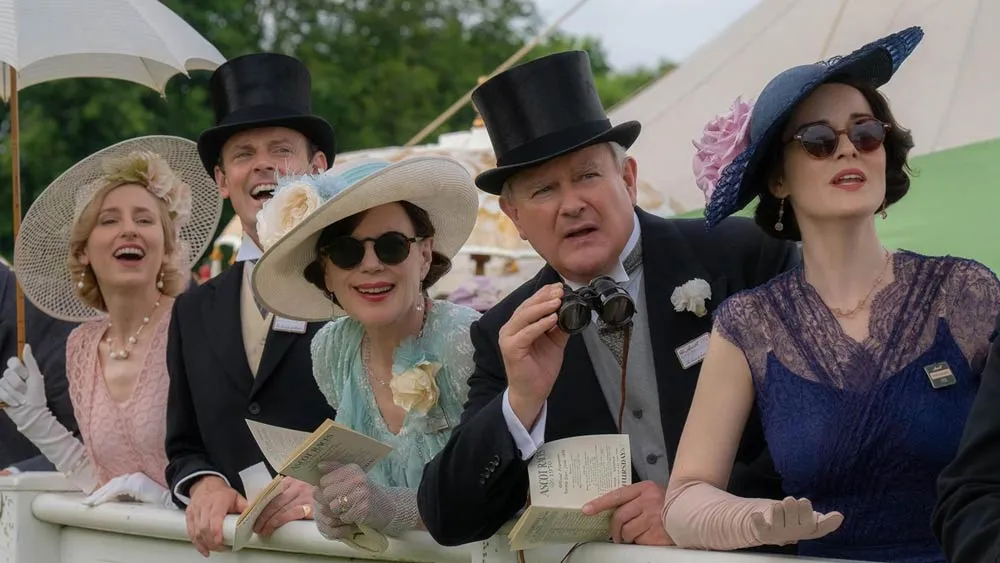March 16, 2021
Elliot Page Opens Up about Being Transgender in New Interview
Kilian Melloy READ TIME: 3 MIN.
For the first time since he announced he is transgender on social media late last year, Elliot Page has opened up in an interview, USA Today reports.
Page, 34, is featured in an exclusive interview in the new issue of TIME magazine, which appeared online March 16.
In the interview, Page suggested that the writer use masculine pronouns for him ("for the record," the article states, "both he/him and they/them are fine"), and revealed that his gender identity is something he has known about since he was a child - a common refrain when trans people tell their stories.
"I felt like a boy," Page said. "I wanted to be a boy. I would ask my mom if I could be someday." When he was nine years old, his mother allowed him to cut his hair, and for the first time people saw Elliot as he saw himself, the TIME article recounted.
Shortly after, Page got cast in a movie that became a television series; his role was that of a girl. "Of course, I had to look a certain way," the actor recalled.
Page's hair is short once again, the article noted; the actor was emotional as he spoke with TIME about his "feeling of true excitement and deep gratitude" now that he has come out as trans - feelings which, he added, are "mixed with a lot of fear and anxiety."
That anxiety was present last year as Page readied himself for what he knew would follow his announcement. "What I was anticipating was a lot of support and love and a massive amount of hatred and transphobia," he told TIME, adding: "That's essentially what happened."
And it happened in a big way, TIME recounted, even bigger than Page might have expected.
"He gained more than 400,000 new followers on Instagram that day alone. Thousands of articles were published. Likes and shares reached the millions. Right-wing podcasters readied their rhetoric about 'women in men's locker rooms.' Casting directors reached out to Page's manager saying it would be an honor to cast Page in their next big movie."
Furthermore, Page noted the unceasing attacks from anti-trans conservatives just don't let up; in the latest example of GOP politicians exploiting LGBTQ people for political gain, state governments across the country have been pursuing legislation targeting trans people, especially transgender youth. "Extremely influential people are spreading these myths and damaging rhetoric," Page said; "every day you're seeing our existence debated."
Added the actor: "Transgender people are so very real."
The article gave an overview of Page's life, career, and activism, and also touched on how staying in the closet throughout his professional life took its toll. He suffered from depression; as reported previously at EDGE, his "X Men: The Last Stand" co-star Ian McKellen noted that Page seemed quiet and withdrawn during the film's shoot in 2005, with McKellen regretting years later that despite being gay himself, he didn't realize what the younger actor was going through.
It wasn't until the COVID-19 pandemic forced a shutdown of most TV and movie production that Page had time and space he needed to reflect, and that was when he came to the decision to come out and live authentically.
That coming out experience wasn't his first, though. Page had come out in 2014 as gay, but it was a half-measure. "The difference in how I felt before coming out as gay to after was massive," he recalled to TIME. "But did the discomfort in my body ever go away? No, no, no, no." Wearing women's clothing, he confided, "would make me so unwell."
By contrast, when Page got top surgery, just before coming out on social media, it "completely transformed my life," the actor explained. Citing the transphobic misinformation spouted by Sen. Rand Paul during confirmation hearings for Dr. Rachel Levine, who has been nominated by President Biden to serve as Assistant Secretary for Health, Page offered a refutation of Rand's sensationalistic - and simplistic - tirade about surgical "mutilation," saying his top surgery was "not only life-changing but lifesaving."
"So much of his energy was spent on being uncomfortable in his body," TIME Magazine noted of Page. "Now he has that energy back."
True enough...the same day the interview went up online, Page took to Instagram to share it with followers and ask them to "please join me and decry anti-trans legislation, hate and discrimination in all its forms."
Kilian Melloy serves as EDGE Media Network's Associate Arts Editor and Staff Contributor. His professional memberships include the National Lesbian & Gay Journalists Association, the Boston Online Film Critics Association, The Gay and Lesbian Entertainment Critics Association, and the Boston Theater Critics Association's Elliot Norton Awards Committee.


